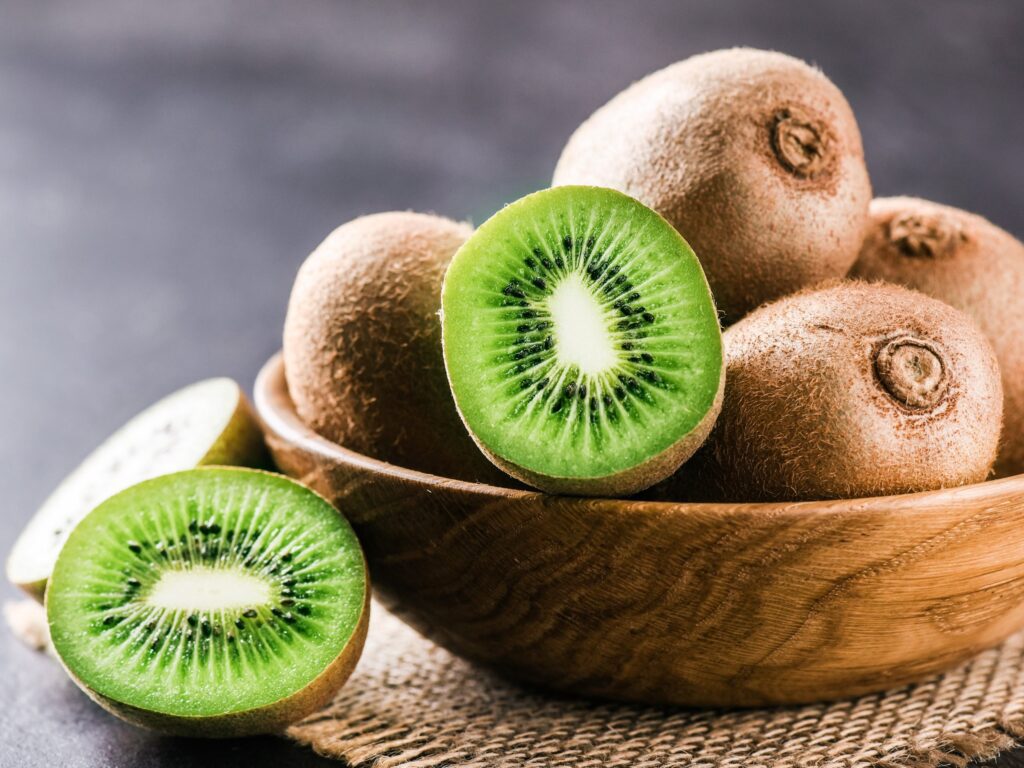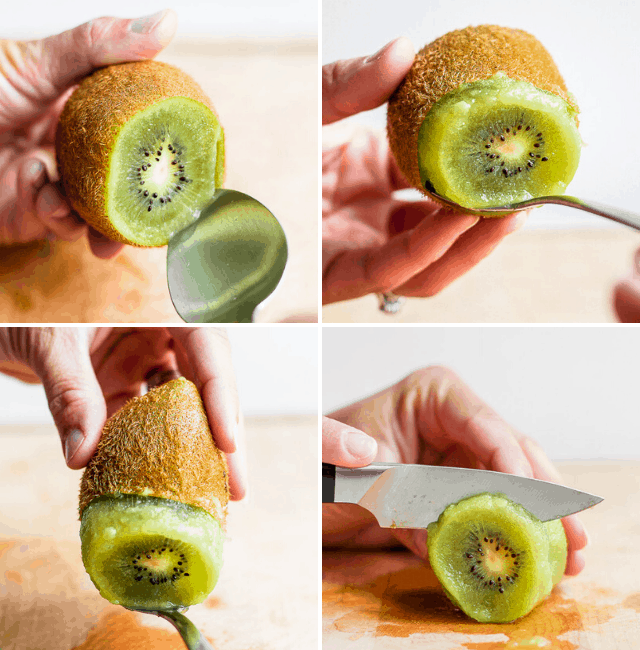Few fruits can compare to the remarkable health advantages provided by the humble kiwi in terms of nutrients. This little, fuzzy fruit, often called the Chinese gooseberry, is very beneficial to overall health and nutrient richness. A nutritious powerhouse, kiwi fruit supports heart health and the immune system and should be a regular part of your diet. We’ll examine seven fascinating health advantages of kiwis in this investigation, which will convince you to include them in your menu.

Immune system boost
The vitamin C concentration of kiwi fruit is well known to be superior to that of oranges. Strong antioxidant vitamin C is essential for strengthening the immune system. White blood cells are the body’s main line of defense against infections, and it aids in stimulating their production. Frequent kiwi eating can help support a strong immune system, which lowers the risk of contracting illnesses and common colds.
Rich in Antioxidants
Besides vitamin C, kiwi fruit is rich in other antioxidants such as polyphenols and carotenoids. These compounds work together to counteract oxidative stress in the body by neutralizing free radicals that can cause aging and chronic diseases. The combined action of these antioxidants makes kiwi a powerful ally in promoting cellular health and preventing oxidative damage.
Digestive Health Support
Actinidin, an enzyme found in kiwi fruit, helps break down complex proteins in the stomach, making them easier to absorb in the small intestine. Including kiwi fruit in your diet may help relieve common digestive problems and support a healthy gut environment.
Heart Health Promotion
Kiwi contains several components that are good for heart health. The fruit is high in dietary fiber, which binds to and eliminates excess cholesterol from the body to help control cholesterol levels. Kiwi’s potassium concentration also helps to maintain normal blood pressure, which lowers the risk of cardiovascular illnesses. Kiwi is a great option for heart health maintenance because of its fiber, potassium, and antioxidant content.
Skin Health and Anti-Aging Properties
Kiwifruit contains antioxidants that are good for your internal health as well as your skin’s appearance. Collagen is a protein that gives the skin structure, and it requires vitamin C to be synthesized. Sufficient production of collagen is linked to youthful appearance and supple skin. By lowering wrinkles and fostering a healthy complexion, eating kiwis can help fight the effects of aging.
Management of Blood Sugar Levels
Because kiwis have a low glycemic index, they don’t significantly affect blood sugar levels. This makes it a fruit that is appropriate for those who have diabetes or are trying to control their blood sugar levels. Because kiwi’s high fiber content slows down blood sugar absorption, it also helps control blood sugar levels.
Weight Management
Kiwi can be a useful addition to the diet for people who are trying to lose weight. It is a fruit that is high in nutrients and low in calories, which makes it a filling and healthful snack choice. Because fiber makes you feel fuller for longer, you’re less likely to overeat. Kiwi is a great option for people watching their calorie intake because its natural sugars provide it a sweet taste without the need for added sugars.
The kiwi fruit is a nutrient-dense powerhouse that offers numerous health advantages. This little fruit is incredibly nutrient-dense and health-promoting, supporting heart health, boosting immunity, and enhancing skin vigor. Kiwi is a delicious and practical way to improve your general health and wellbeing. Try including it in your daily diet.
You may like : Kiwi Fruit: The Green Gold of Nutritional Superfoods
How To Store Kiwifruit
Kiwi fruit may be easily stored. Buy ripe but firm kiwis to ensure freshness. Store unripe ones at room temperature until they ripen, which usually happens in a few days to a week. Keep them whole. When ripe, store them in the fridge in a container or plastic bag to keep them from drying out. Make sure to keep them away from fruits that release ethylene. Kiwis store well in the fridge for up to 7 days. Peel, cut, and freeze the slices in an airtight container if you need to keep them for a longer amount of time. This frozen alternative is perfect for a cool frozen snack or smoothie.
How To Use Kiwifruit
Kiwi fruit is a tasty and adaptable supplement to a wide range of meals and snacks. To eat kiwis, either wash and peel the fruit, or just cut it in half and use a spoon to remove the bright green flesh. Kiwis are delicious on their own, offering a delightfully tangy and sweet taste with a pleasing crunch from their edible black seeds. They also give a lovely splash of color and distinct flavor to fruit salads. Slices of kiwi are a pleasant contrast in sweets such as pies and tarts. In addition, adding kiwi to cereal and yogurt or smoothies gives your breakfast and snacks a healthy touch.

What Does Kiwifruit Taste Like?
Kiwifruit has a distinct tart-sweet taste. The flesh has a flavor profile that is similar to a blend of citrus, melons, and strawberries. It is usually sweet with a hint of tanginess. The fruit’s black seeds impart a little crunch and a faintly nutty flavor. Kiwifruit is a lovely and refreshing fruit to relish because of its unique combination of sweet and sour flavors, as well as the contrast of its crunchy seeds. Ripeness can cause a minor variation in flavor; riper kiwis are sweeter and less acidic, while less ripe ones may have a stronger acidity.
